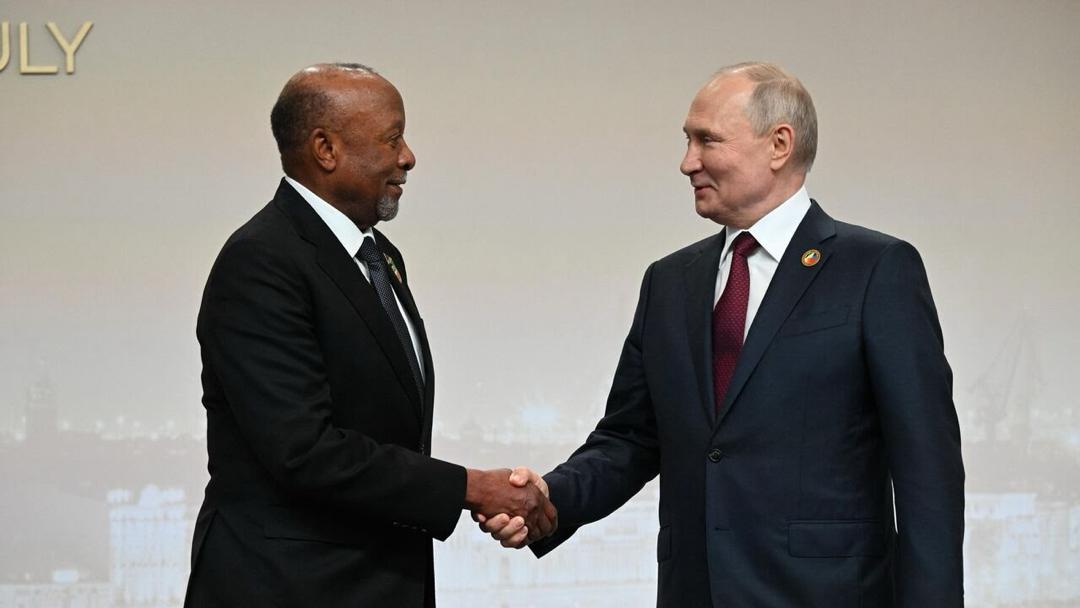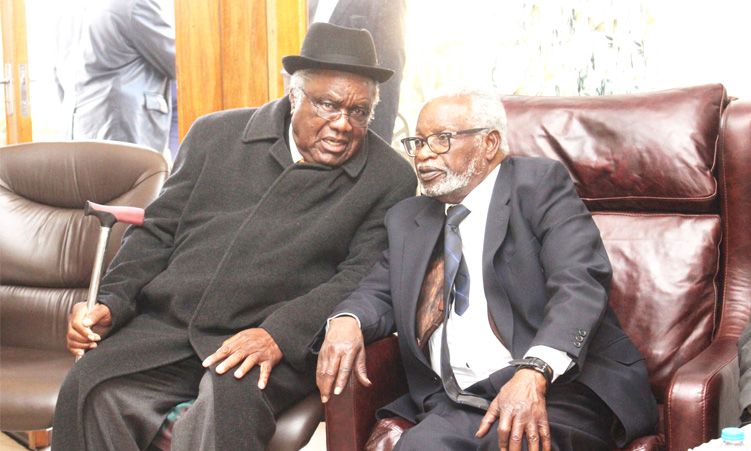Swapo presidential candidate Netumbo Nandi-Ndaitwah wants Namibian voters to believe that business people, foreign entities and Swapo companies gave money to the party’s election campaign with no strings attached.
Nandi-Ndaitwah (71), whose electioneering moniker is NNN, has been around long enough to know there’s nothing for mahala, and definitely no free lunch from businesses that exist first and foremost to make money, aka profit.
NNN shot down criticism that prominent individuals and companies that responded to her appeal for generous donations at the Swapo fundraising event in Windhoek last Friday were doing it for political influence-peddling.
“We cannot sell this country, not Swapo, not under the leadership that is in this room. It will not happen,” NNN responded this week.
That’s rich coming from the same people who have hosted fundraising events explicitly inviting rich people for networking to “influence government policies”.
NNN complained that the characterisation of “democracy for sale”, after Swapo garnered N$16 million in an evening from businesspeople and foreign entities, was “not fair”.
“Follow other democratic countries and you will see how candidates are raising money openly. Are big companies selling their democracy by giving money?” she asked.
NNN ought to be candid and admit that citizens in many democratic countries have regularly questioned the private and business funding of politicians.
After reeling from several instances of corruption and state capture, South Africa has since 2021 tightened campaign financing, going as far as restricting low public disclosure of donations to N$100 000 a year and setting limits for single donors, who must be openly known.
Transparency for party funding in South Africa has also been bolstered with strict enforcements.
In Namibia, political parties have routinely flouted legal mandates to submit detailed audited financials and their assets to parliament and the Electoral Commission of Namibia (ECN).
Parties don’t even bother to keep registers of donors and make them available to their members, as per the law.
Such is the lack of openness that when The Namibian questioned the Independent Patriots for Change about how it acquired money to buy a fleet of election vehicles, the party merely stated it acted within the law and would say nothing else.
Overall, the public is left uninformed in a culture set by years of apartheid slush funds and independent Namibia’s overwhelmingly dominant ruling party.
Among people and entities said to have pledged towards the N$16 million in donations are Rani supermarkets owner Ali Dharani (N$1,5m), government tender businessman Shapwa Kanyama (N$1m), Zimbabwe president Emerson Mnangagwa’s family (N$2,5m), a Norwegian entity in the beef business (N$3m) and Swapo businesses such as Kalahari Holdings, Gendev Fishing, Zebra Holdings, and a string of private individuals characterised as tenderpreneurs (people whose business dealings are almost exclusively acting as middlemen for government transactions).
It is difficult to shake off the thought that such donors are buying lobbying space to maintain a business advantage with ruling party officials. About 70% of Namibia’s economy is dominated by the state’s public works and purchasing contracts, better known as ‘tenders’.
Swapo companies and entities owned by cronies of ruling party officials routinely get preferential treatment in winning the bids.
The Fishrot scandal was instrumental in exposing Swapo leaders, going as far as using state resources like fishing licences and quotas to fund internal and external campaigns.
Swapo has refused to provide a list of the latest donors for independent verification, a move ostensibly meant to hide details of their financiers.
In short, Madam NNN, every time the ruling party has semi-transparent fundraising activities, the public knows there’s a quid pro quo by which Swapo puts potential donors to the test and then rewards them with state resources.
Sadly, five years on it is clear that Swapo and the rest of the ruling elites have learnt no lessons from the Fishrot scandal to curb the buying of Namibia’s democracy.
The rot continues.
Stay informed with The Namibian – your source for credible journalism. Get in-depth reporting and opinions for
only N$85 a month. Invest in journalism, invest in democracy –
Subscribe Now!










